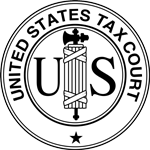- Free Consultation: (772) 418-0949 Tap Here to Call Us
What Is an IRS Penalty Abatement?

Surprisingly not many taxpayers either know about the IRS’s penalty forgiveness under Penalty Abatement (“PA”) and First Time Abatement (“FTA”) or take advantage of them if their tax situation warrants it. The IRS introduced this penalty waiver over 20 years ago, yet it is often overlooked. Tax penalties can significantly increase the total balance owed, making it even more challenging to square your IRS tax debts.
What Penalties Can the Taxpayer Request Abatement? Although there are over 150 kinds of civil penalties in the U.S. Internal Revenue Code, ranging in severity, the most issued by the IRS are Failure to File, Failure to Pay, and Failure to Deposit penalties. These penalties may be eligible for abatement under an FTA provision.
Requirements for FTA Consideration
An FTA can be very beneficial; however, certain restrictions exist. There are several factors to address to qualify for a tax abatement:
- Filed Tax Returns: The taxpayer must have their tax returns filed for the last three years before the tax year they received the Penalty. There cannot be any request by the IRS for an unfiled return. Also, within this filing requirement are that any required extensions have been filed.
- For IRS tax debt, there needs to be a plan showing that the balance is being paid. This is typically done through an IRS payment agreement.
- First Time Abatement is precisely that – a one-time deal. You cannot request an FTA over multiple years.
- Didn’t receive any penalties during the prior three years, or any penalty was removed for an acceptable reason other than First Time Abate. Example: You request First Time Abate for a Failure to Pay Penalty on your 2021 tax return. You don’t have any unresolved penalties on tax returns for 2018, 2019, and 2020 and didn’t get First Time Abate relief.
How to Request the First-Time Abatement
When you make the request, you must adequately indicate what type of Penalty you seek to abate. If you are requesting this for your personal income tax return, you are eligible to apply for the following:
- Failure-to-File. The request is to abate a certain amount of fees and penalties related to a single tax period when you fail to file a return.
- Failure-to-Pay. In this case, you filed the return and had a balance due but did not pay it.
If you are requesting this for your business tax return, you are eligible to apply for the following:
- Business Failure-to-File. This request only is for a business that failed to file in a given year.
- Business Failure-to-Pay. This request is for a business that has not paid its taxes due, even if just a partial amount remains.
Submitting a Request
You can reach out to the IRS and make a request. Having an experienced, qualified tax practitioner to assist in filing the request could go a long way in getting you accepted. Not all requests are accepted on the first request and require appeals. Having someone who knows the IRS’s ins- and outs, along with a tax attorney-CPA-EA’s ability to properly advocate the position, could make the difference.
Experience Tax Practitioner attorney-CPAs can help determine whether you qualify, the best position to advocate for, along determining procedural processes to adhere to. In addition, if follow-ups are required, we know where and whom to seek results tenaciously. With an FTA, one can reapply if turned down on the first attempt.
It is still possible to request a refund for FTA even if you have already paid the Penalty and interest. The time limit to make the request is three years from the return or filing date or two years after the Penalty was paid.
Having penalties abated is a great way to lower the tax burden and should not be forsaken. The IRS does not automatically grant this relief, so having an experienced tax practitioner to help see this through could be highly beneficial. Call Harmon Tax Resolution, LLC today to see how Will Harmon, Esq, CPA., IRS EA, could help you with your tax abatement needs.











